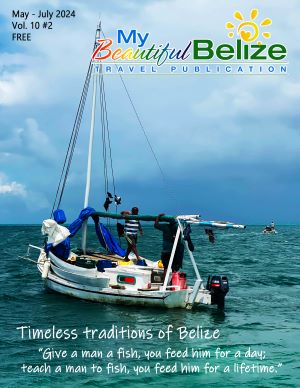When thinking of the Caribbean there are either two routes the mind can take: The first, that of serenity of the warm Caribbean breeze, coconut trees, picturesque white sand beaches, sparkling crystal waters, or the second that of loving people, cool drinks dancing revelers and the fun and excitement CARNIVAL and JO’UVERT!!!!
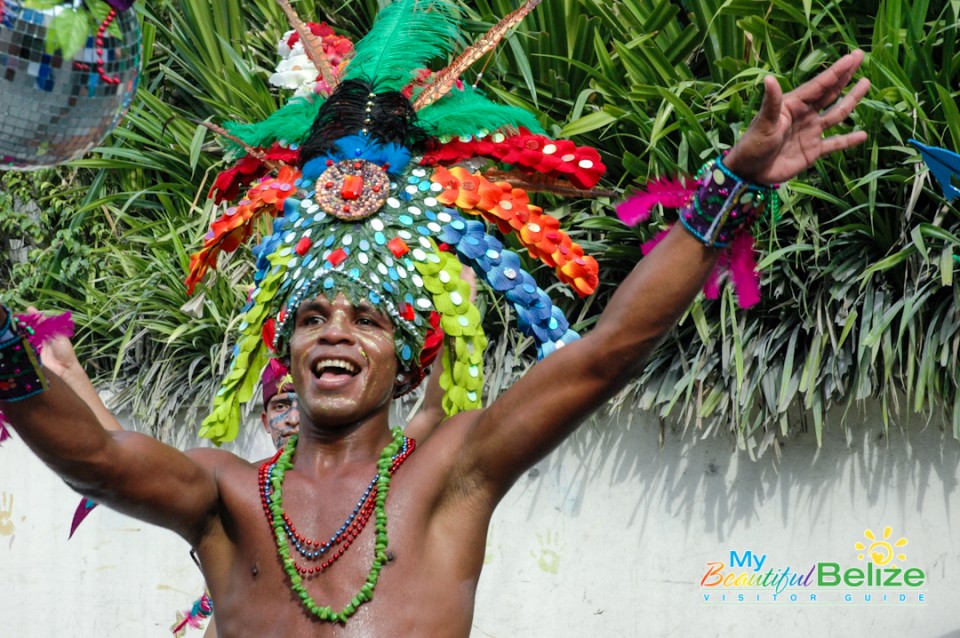
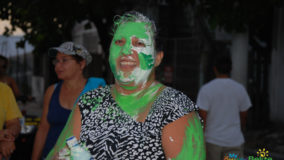 Carnival is a huge part of Caribbean history and has in fact become a part of tradition as well. In Belize and in many other Caribbean regions Carnival or Bacchanal as it is also known, comprises of a huge parade with dancing revelers displaying colorful vibrant costumes, usually depicting aspects of local culture, folklore, fantasy or mythical entities. Carnival is practiced in mostly Roman Catholic predominant regions and takes place immediately before Lent. Due to the fact that Lent is a time of religious observance and usually includes fasting and refraining from meat and alcohol, revelers use Carnival as their last festival of indulgence before the fasting begins, which describes the term Bacchanal.
Carnival is a huge part of Caribbean history and has in fact become a part of tradition as well. In Belize and in many other Caribbean regions Carnival or Bacchanal as it is also known, comprises of a huge parade with dancing revelers displaying colorful vibrant costumes, usually depicting aspects of local culture, folklore, fantasy or mythical entities. Carnival is practiced in mostly Roman Catholic predominant regions and takes place immediately before Lent. Due to the fact that Lent is a time of religious observance and usually includes fasting and refraining from meat and alcohol, revelers use Carnival as their last festival of indulgence before the fasting begins, which describes the term Bacchanal.
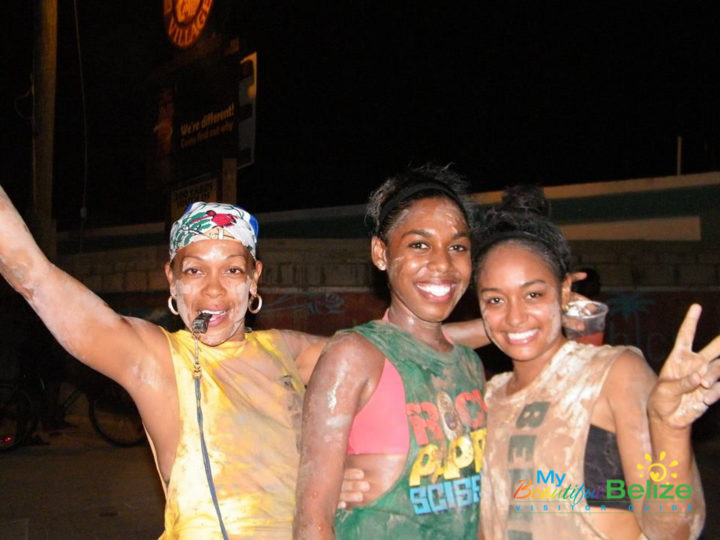
(Now here’s a bit you may not know: A Bacchanal is a participant in Bacchanalia. Bacchanal or Carnival as we know it, has been around for centuries and was originally a series of mystical festivals done in reverence to the Roman God of wine and fertility, Bacchus. This practice of Bacchanalia or Carnival was then adapted by the Caribs and West Indians in the Caribbean as a result of the French that later settled in the region, and has since become tradition).
The road march of colorful costumes and the infamous “big trucks” booming soca music together, create a high energy atmosphere perfect for hours upon hours of dance and celebration. Carnival has definitely become one of the biggest displays of patriotism and carnival goers come out by the thousands to cheer on their favorite carnival group, join in the party or to simply enjoy the show.
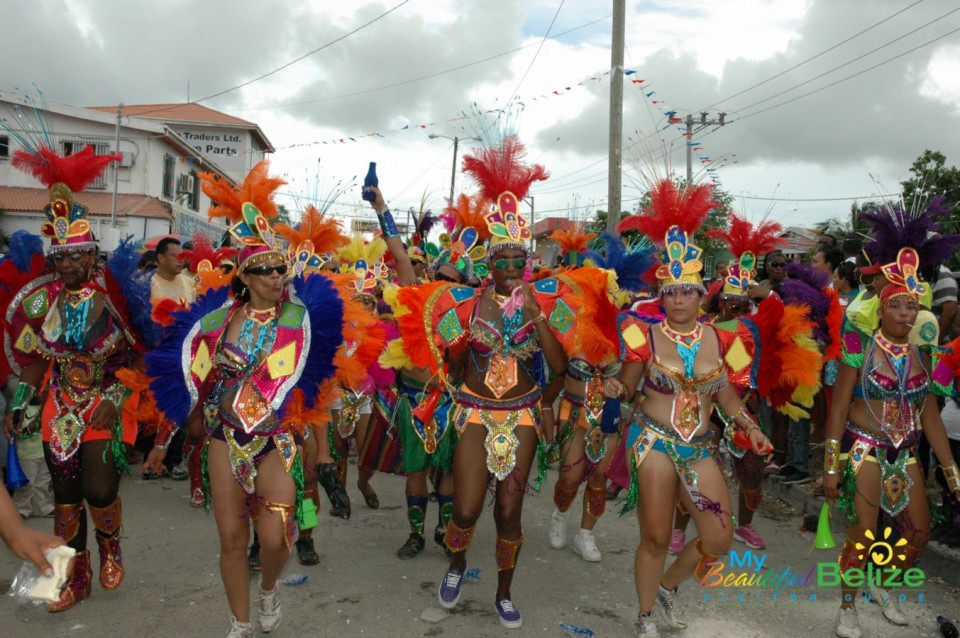
While many of us are familiar with Carnival there is one aspect of it that is almost, if not as equally fun …Jo’uvert (pronounced: Jou-vay)! The word Jo’uvert itself is derived from French patios and literally can be translated as “daybreak” or morning. This is only fitting being that Jo’uvert starts in the evening and lasts until daybreak. For many, thinking of jo’uvert brings one thing to mind “Loads.” Loads of music, drinks, mud, paint, oil or chocolate smeared all over loads of people, who partake in this street party until the break of dawn, all for the sake of good and maybe “not-so” clean fun. In Trinidad, the covering of oneself and others in mud/oil/chocolate is done in remembrance of a civil disturbance that took place in Port of Spain, whereby the people painted themselves with oil or mud in order to avoid recognition.
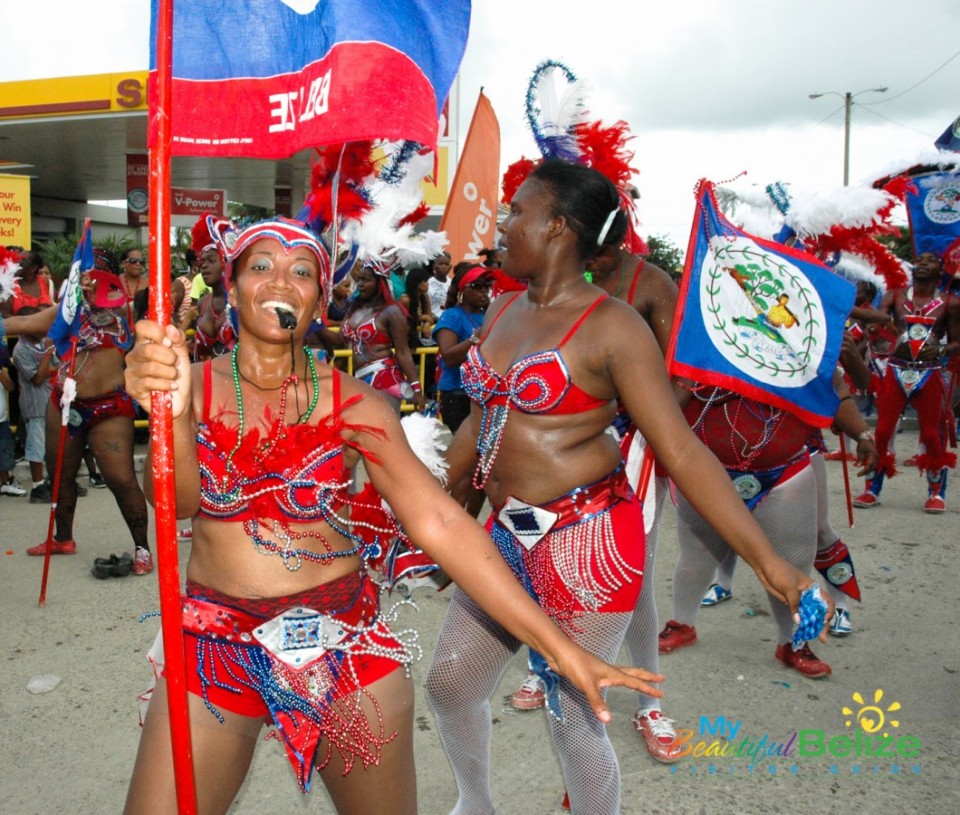
Carnival was introduced to Belize in 1975 initially as an addition to 10th of September celebrations. Today, Carnival and Jou’vert are both an official part of the September Celebrations leading up to September 21st, Independence Day! While the reasoning behind the different customs of Carnival and Jo’uvert may vary from region to region, here in Belize it is truly done as a celebration of the nation’s independence.


